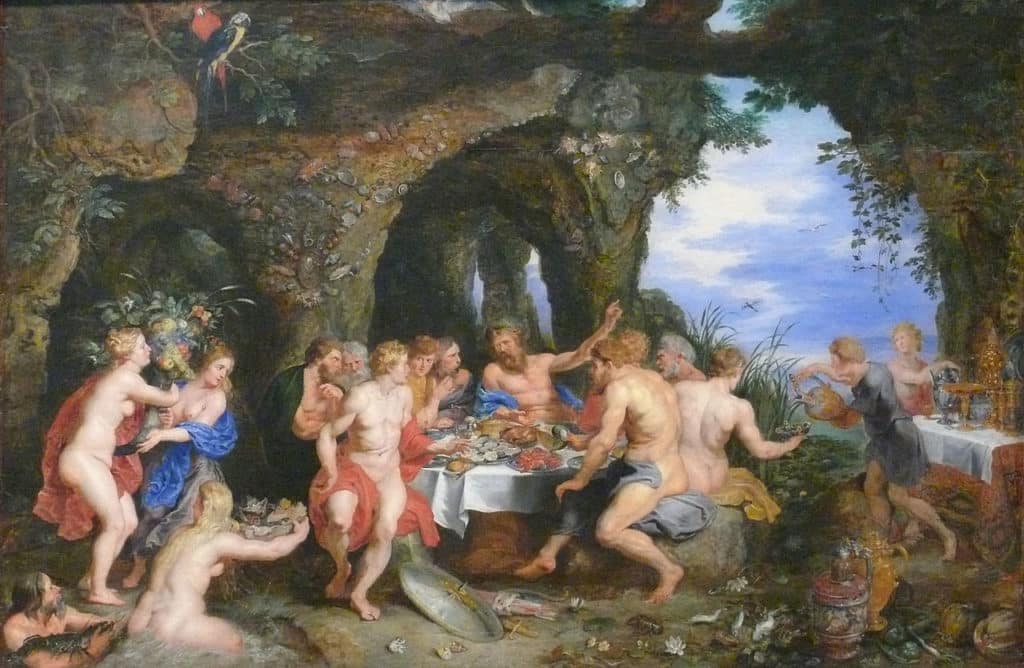Achelous was a Greek river god of the Achelous River, which is the largest river in Greece. Each of Greece's rivers was assigned a deity, and with this one being the largest, he is often depicted as the most powerful of the river gods. Some sources say that the river god was descended from Gaea and Oceanus, but most sources believe that all river deities were descendants of Tethys and Oceanus.

He was often depicted as a gray-haired old man or a bearded young man. He is also depicted as having a serpent's head with horns during his battle with Heracles.
The river god was considered to be an important divinity throughout Greece from the earliest times and was invoked in prayers, sacrifices, on taking oaths, etc.; the oracular Zeus at Dodona usually added to each oracle he gave, the command to offer sacrifices to Achelous. The widespread worship of Achelous points to a more generic meaning of the god himself, perhaps accounting for an interpretation of Achelous as the representative of sweet water in general and, consequently, as the source of all nourishment.
Achelous and Heracles
Achelous and Heracles competed to win over the river nymph Deianeira, the daughter of King Oeneus of Calydon. Heracles defeated the river god after he turned himself into a serpent and a bull. Heracles ripped off one of his horns, forcing him to surrender. The river god was then forced to trade the horn of Amalthea to get it back. The horn of Amalthea was then given to the Naiads by Heracles, who transformed it into the cornucopia, a container full of fruit, vegetables, and other produce.
